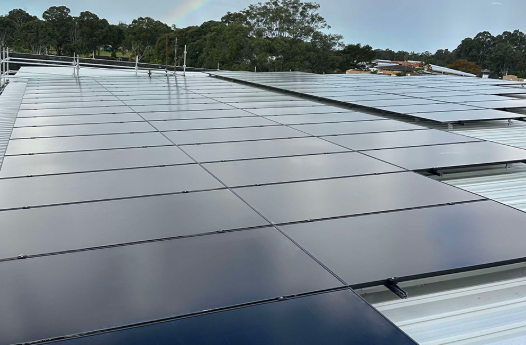DIY vs. Professional Solar Panel Installation: Which Is Right for You?

As energy costs continue to rise and more households shift toward sustainable living, solar panel installation has become one of the most popular investments for homeowners. But once you decide to make the switch, the next big question arises: Should you install solar panels yourself (DIY) or hire a professional installer?
Both options have advantages and drawbacks. Choosing the right approach depends on your budget, technical skills, property needs, and long-term goals. This article will break down the key differences, costs, risks, and benefits of DIY vs. professional solar panel installation, helping you make an informed decision.
Understanding DIY Solar Panel Installation
DIY solar panel installation involves purchasing a solar kit—usually including panels, an inverter, mounting hardware, and wiring—and then handling the installation yourself. These kits are widely available online and often marketed as budget-friendly solutions.
Benefits of DIY Installation
-
Cost Savings – The most obvious advantage is saving money on labor costs. Professional installers may charge thousands of dollars for installation, while DIY kits can be significantly cheaper.
-
Hands-On Learning – If you enjoy tackling complex projects, DIY installation gives you full control and an opportunity to understand your system inside out.
-
Flexibility – You can install at your own pace without waiting for scheduling from installation companies.
Drawbacks of DIY Installation
-
Technical Complexity – Solar systems require knowledge of electrical wiring, structural engineering, and local building codes. Mistakes can reduce efficiency or even create safety hazards.
-
Warranty Issues – Many manufacturers only honor product warranties if installation is done by certified professionals. DIY work could void coverage.
-
Grid Connection Challenges – To connect your system to the grid and qualify for incentives, you’ll often need professional certification and approval from your local energy provider.
-
Risk and Safety Concerns – Working on rooftops with heavy equipment and electrical wiring can be dangerous without the right training.
Professional Solar Panel Installation
Professional installation means hiring a certified solar company to design and install the system for you. These companies handle everything, from permits and safety checks to final connection with the power grid.
Benefits of Professional Installation
-
Expertise and Experience – Professionals ensure your system is installed correctly, safely, and efficiently, maximizing long-term performance.
-
Warranty Protection – Most installers provide workmanship warranties in addition to manufacturer warranties, giving you peace of mind.
-
Access to Incentives – Government rebates, tax credits, and feed-in tariffs often require proof of professional installation to qualify.
-
Time-Saving – Instead of spending weeks learning and installing, a professional team can complete the job in a matter of days.
-
Maintenance Support – Many companies offer ongoing maintenance, ensuring your panels last their full 25–30 years.
Drawbacks of Professional Installation
-
Higher Costs – Professional services come with labor fees, which can significantly increase upfront costs.
-
Scheduling Delays – Depending on demand, you may need to wait for an available installation date.
-
Less Control – Some homeowners prefer the flexibility of DIY, whereas professionals follow standard procedures that may not allow for custom tweaks.
Cost Comparison: DIY vs. Professional
-
DIY Kits: Depending on system size, DIY solar kits can cost anywhere from $4,000 to $10,000. However, this does not include additional costs like permits, tools, or potential repairs if mistakes occur.
-
Professional Installation: A full professional installation usually ranges from $12,000 to $25,000 before incentives, but rebates and tax credits can lower this significantly.
While DIY may seem cheaper upfront, professional installation often pays for itself through efficiency, incentives, and warranty protection.
Safety and Legal Considerations
Safety and compliance are often overlooked when homeowners consider DIY solar panel installation. Professional installers are trained to manage:
-
Electrical wiring and fire safety standards
-
Roof load capacity and structural integrity
-
Local building permits and inspections
-
Utility company requirements for grid connection
Without meeting these standards, a DIY system could face legal issues, insurance complications, or even be denied connection to the grid.
Long-Term Value and Efficiency
One of the main reasons to choose professional installation is system efficiency. Poorly installed panels may not align properly with sunlight, leading to lower energy output. Even a small mistake in wiring or positioning can reduce performance and increase long-term costs.
Professional installers use advanced tools and software to calculate optimal panel placement and tilt, ensuring your investment produces maximum returns over its 25+ year lifespan.
Which Option Is Right for You?
Ultimately, the decision between DIY and professional solar panel installation comes down to your budget, skills, and risk tolerance.
-
Choose DIY if:
-
You have advanced electrical and construction skills.
-
You’re comfortable working at heights and following strict safety codes.
-
Your main priority is minimizing upfront costs.
-
You’re installing an off-grid system (like for a cabin or RV) that doesn’t require utility approval.
-
-
Choose Professional Installation if:
-
You want access to government rebates and incentives.
-
You prioritize long-term efficiency, reliability, and warranties.
-
You lack technical expertise or don’t want to risk safety.
-
You’re installing a full residential or commercial system connected to the grid.
-
Final Thoughts
Installing solar panels is a powerful step toward energy independence, reduced bills, and a more sustainable future. While DIY solar panel installation may appeal to budget-conscious homeowners with technical skills, the risks and limitations make it unsuitable for most grid-connected systems.
For the majority of households, professional solar panel installation offers better long-term value, peace of mind, and guaranteed performance. By investing in professional expertise, you’ll maximize the benefits of your solar system and ensure it powers your home safely and efficiently for decades to come.
- Art
- Causes
- Crafts
- Dance
- Drinks
- Film
- Fitness
- Food
- Spiele
- Gardening
- Health
- Startseite
- Literature
- Music
- Networking
- Andere
- Party
- Religion
- Shopping
- Sports
- Theater
- Wellness


